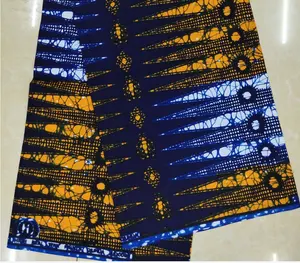
All categories
Featured selections
Trade Assurance
Buyer Central
Help Center
Get the app
Become a supplier

(175505 products available)










































100 woven cotton fabric has several uses in so many applications. Due to the structure, it is very strong and can be used for long. The main types happen to be:
This is the most basic kind of cotton. It takes very little work to weave from plain woven yarns. It makes up the basis for many sorts of fabrics. It is firm and long-lasting, making it suitable for daily wear. Many incorporate it into clothing, home textiles, and work in other essential areas.
Twill woven cotton has a diagonal pattern on the surface. This gives it a more stylish look compared to plain woven cotton. The structure makes the fabric more robust and tends to be less wrinkly. It is common in denim, chinos, and jackets. Normal use includes in garments requiring durability.
Certain practices produce satin woven cotton with a glossy surface. It normally incorporates heavy staple yarns. Unlike others, the surface has a sheen, making it very elegant, thus suitable for drapes and evening wear. While heavy, it still has a soft and fluid feel, which adds to its beauty. Key use areas in fashion are high-end apparel and upholstery.
Canvas is heavy-grade cotton fabric. They construct it with a plain weave or a basic twill weave. A strong, thick fabric best serves outdoor gear like tents, bags, and workwear. Pure cotton canvas is breathable even when the fabric is heavy. It is one reason it works so well for durable yet comfortable apparel.
Poplin is a tightly woven cotton fabric. It has a smooth finish due to its plain weave. Their lightweight normally makes them ideal for shirts and dresses. Even though the cotton is tightly woven, it still provides airflow. It makes poplin a favored material for seasonal garments.
Woven cotton fabric checks most of the boxes for medical supplies such as bandages. It has breathability, softness, and compatibility with the skin. Manufacturers make surgical gowns, masks, and bed linens in hospitals from cotton fabric. Its capacity for multiple washings and sterilization makes it suitable for this area.
In the automotive area, woven cotton fabric is frequently used in upholstery and seat covers. While synthetic fibers give durability, cotton provides comfort and breathability. Cotton is better for the environment than other fabrics. Many brands are switching to woven cotton for more eco-friendly cars.
Certain woven cotton geotextiles are used in soil conservation and stability projects. They help this fabric with drainage and also prevent erosion by stabilizing slopes and embankments. Cotton's biodegradability makes it suitable for short-term landscaping and agricultural uses. It normally breaks down in two years or less, depending on conditions.
In farming, woven cotton fabric serves as protective coverings for crops. These provide shade or frost protection while still allowing sunlight and air through. It is also used in planting, where certain practices weave cotton mats to support soil health. The organic nature of the fabric stands cotton apart in organic farming, providing a sustainable alternative to synthetic fabrics.
This fabric works well for heavy-duty applications. They include tarps, covers, and filter bags. Their strength and washability ensure they withstand the rigors of industrial environments. In areas like construction and mining, tools and equipment protection is the key function of woven cotton.
Woven cotton fabric generally checks all boxes for breathability, strength, and versatility. It is softer and stronger than other fabrics. The tightly woven structure allows it to hold its shape for many uses. It has numerous washes and wears common in areas such as clothing, home textiles, and industrial fabrics.
Yet, while durable, it is still vulnerable to fading from prolonged sunlight or some color bleaches. Regardless, the overall longevity makes it a prime choice across many areas.
The good thing about 100% woven cotton fabric is that it is easy to wash. Wash it using cold water and mild detergent. Avoid hot water, as it affects the fibers and causes fading or weakening. When it comes to drying, low heat is best. High temperatures may shrink the fabric. Let it dry naturally for the best results.
When storing, keep it in a dry and cool place. Always ensure items made from this fabric are laundered following care instructions for uniforms and workwear to maintain professionalism.
When choosing 100% woven cotton fabric for business, consider the weaves. Satin provides a luxurious feel, while twill offers durability. Each weave serves distinct purposes. Satin suits apparel with its smooth drape. In contrast, denim cotton twill is robust for workwear and outdoor gear.
Assess fabric weight. Light-weight poplin is great for summer garments. In contrast, heavy canvas is ideal for bags and tents. Businesses targeting healthcare sectors normally use medical-grade cotton. Look for fabrics without dyes that could affect pollution.
Look at the thread count. A higher thread count leads to a smoother finish, thus more suitable for drapery or garments that require a fine touch. A lower thread count is rougher but more breathable and stronger. Care instructions are also vital. Fabrics requiring low maintenance appeal to a broader market. Finally, only source fabrics from vetted manufacturers to ensure quality and reliable supplies.
A1: The features are breathability and longevity. The fabric is easy to maintain. The cloth is versatile and fits many applications from garments to upholstery.
A2: Woven cotton is more eco-friendly than blended fabrics. It is also softer and more breathable than various synthetics. So, while blended models may have more durability, woven cotton offers natural comfort.
A3: Yes. Heavier cotton fabrics like canvas are fit for outdoor gear. They are durable, breathable, and weather-resistant.
A4:Quality results from checking the thread count and weave tightness. Also, look at the finish for smoothness.
A5:The basic care tips are washing in cold water and avoiding harsh chemicals. Low-heat drying is best. Avoid prolonged sun exposure.